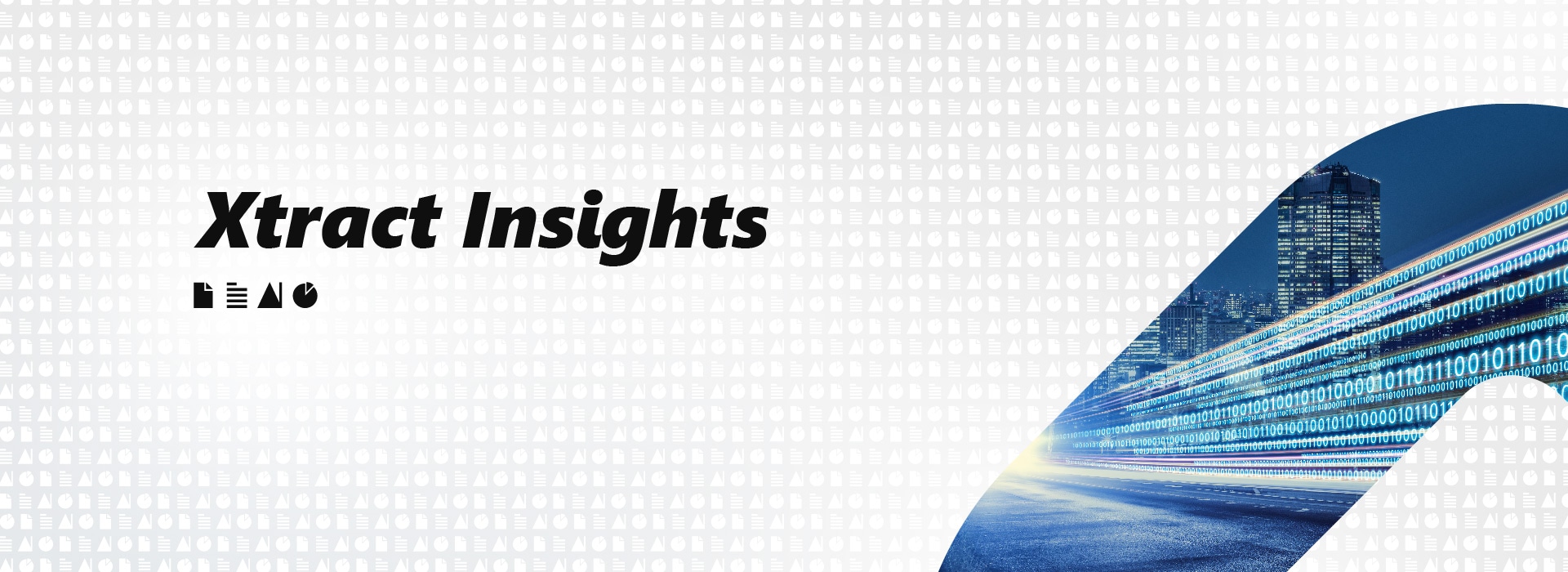Home > XtractEdge > Blogs > Digitizing enterprise data via CMR, RPA and OCR: Find out how
Digitizing enterprise data via CMR, RPA and OCR: Find out how

Taking crucial businesses and operational decisions quickly and accurately is a massive challenge for enterprises due to large volumes of fragmented and unstructured data. Nevertheless, as automation is the future, the challenge of unstructured data can be addressed intelligently.
Vying for an urgent need for data digitization, organizations are increasingly shifting their priorities toward addressing the disorganized data challenges. This is where advanced technologies such as Cognitive Machine Reading (CMR), Robotic Process Automation (RPA), and Optical Character Recognition (OCR) come in.
What is data digitization?
Data digitization is the method by which physical or manual data, which includes images, signatures, handwriting, videos, text, and audio) and documents are converted from analog to digital form, making the data readily available and usable by automated machines and humans.
The data is accumulated and organized in databases, repositories, lakes, data marts, and storage warehouses. Some of this information is accessible, however unstructured and dispersed, in several digital formats, such as emails and pdfs. Additionally, many data are found in non-digital paper-based documents as well.
Why is data digitization important?
Data Digitization is the first and foremost step each company should start in the digital transformation journey. However, sole digitization is not enough for the seamless data extraction flow. Hence, the digitized data must be in unison with the combined technologies of automation and artificial intelligence to avail benefits in quicker processing time.
Below are some of the benefits:
In the modern-day business game, companies require the assistance of analytics-based data for end-to-end business process automation. However, the issue here is that these technologies are effective only in the case of structured and digitized data.
For businesses to achieve end-to-end process automation, they need analytics-based insights to provide a refined structure to the data digitization process. However, both of these technologies flourish only in the case of structured and digitized data. Woefully, most of the data are present in the unstructured format, and converting them into usable mode is one of the most challenging aspects of this process. This is where AI-powered data digitization software solutions like CMR, OCR, and RPA prove crucial.
Data digitization via CMR – A model beyond RPA and OCR
Automation such as CMR, OCR, and RPA is undoubtedly the prospective solution for nullifying the challenge of unstructured and scattered data. However, OCR and RPA are merely short-term resolutions. RPA is not at all programmed to be able to read the information but only react to the available data. So, the scope of automation in RPA is limited.
On the other hand, OCR converts the scanned documents into machine-readable text, but it can work only if the documents share the information. Moreover, in one of the major surveys, respondents said that OCR provides only 50% accurate process information.1 Hence, it can be inferred that this is one of the primary reasons for such automation not being able to scale heights.
In such a situation, embedding CMR into the process is the only answer that results in quicker and high-quality data digitization techniques that can reduce the billing errors and turnaround time by 63%.2 Also, business process decisions revolve primarily around unstructured data, and CMR handles this challenge more effectively when compared to OCR.
Data digitization services by CMR eliminate the human involvement in the case of inbound document capture and extraction by data digitization software and authenticating the required data. Instead, CMR encapsulates the unstructured data points from several file types and identifies the patterns by evaluating them.
Data digitization with CMR – A must solution for the future
With the need to make insightful decisions quickly, companies are exploring their transformational journey with new evolving technologies, although some are still in the initial stages. Earlier, OCR was the one that was the most sought-after technology. This was followed by the emergence of RPA. But, due to certain shortcomings, it gave way to CMR, which is believed to be the most apt solution for overcoming the ever-mounting data challenges as it applies the ML models to capture, analyze and process data.
Therefore, the data capturing, and extraction process is bound to become more efficient, provided the organizations get hold of the right capabilities and digitization platforms such as XtractEdge for end-to-end business process automation and making a correct and timely strategic decision.

Possibilities Unlimited
Possibilities Unlimited
Inspiring enterprises with the power of digital platforms
More blogs from EdgeVerve →